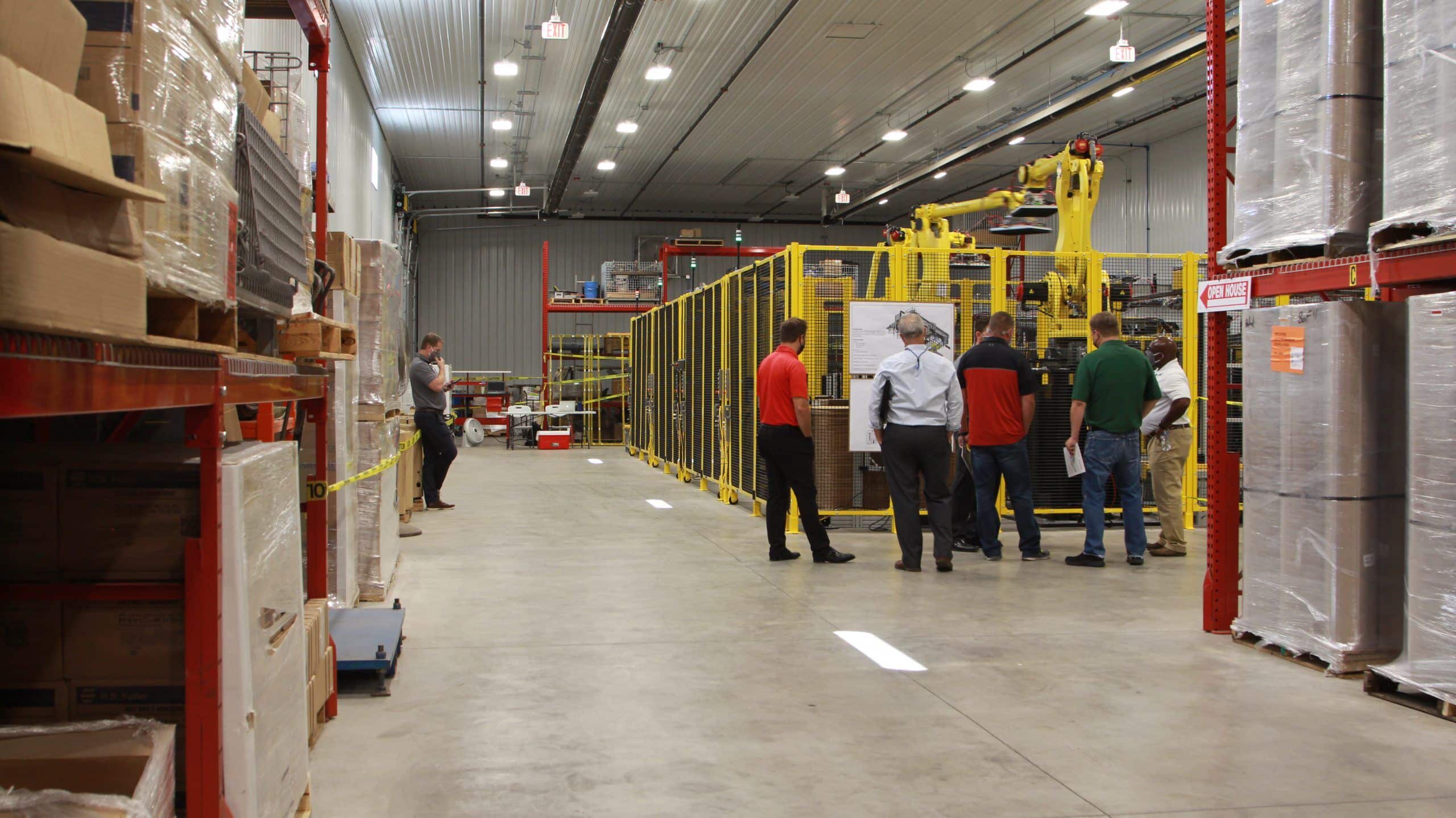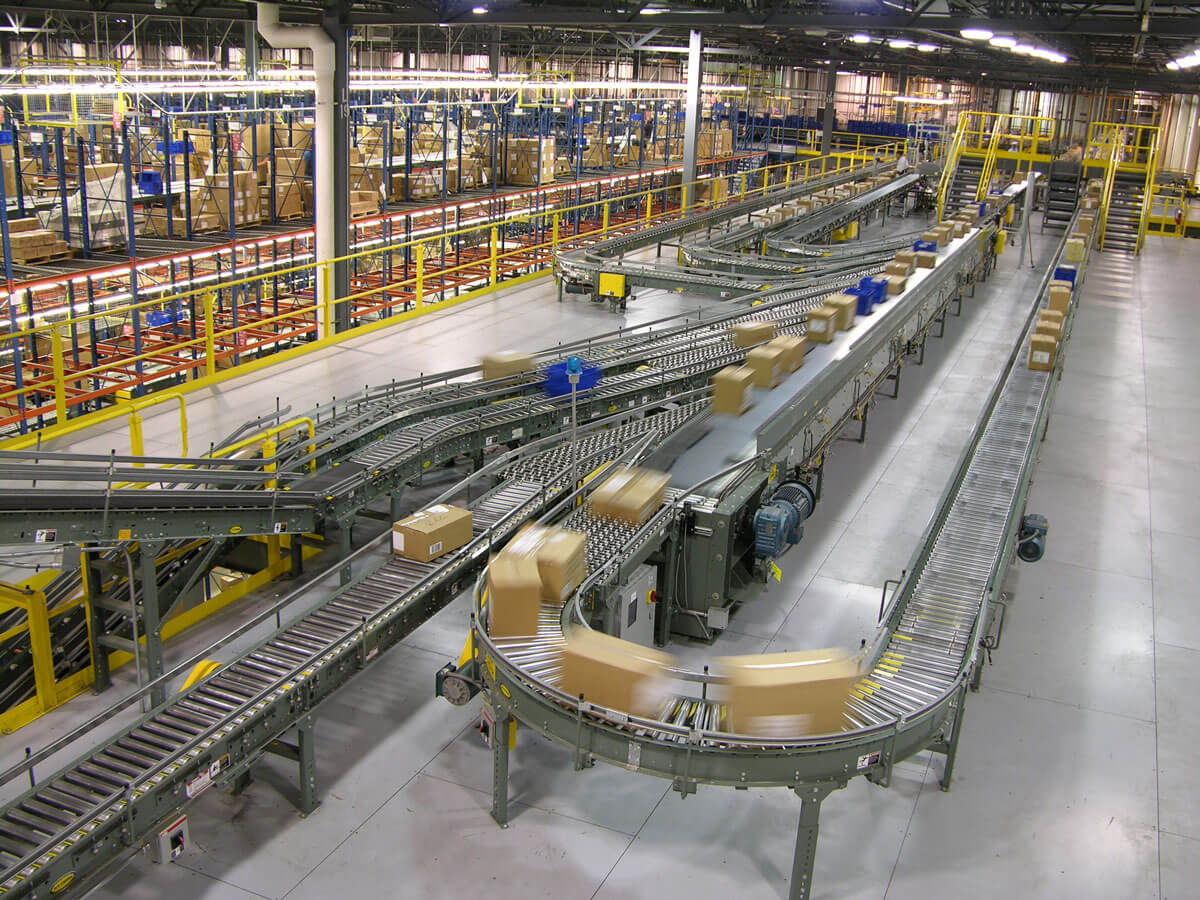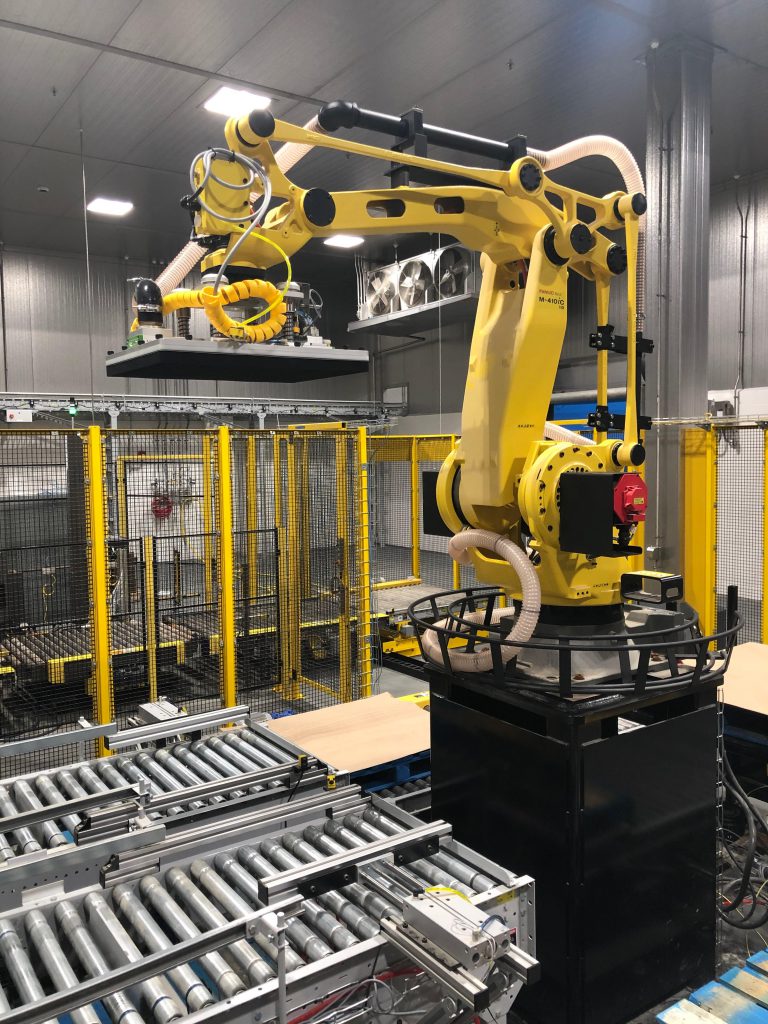Industrial automation systems have become an essential component of every modern warehouse. Advancements in automation have allowed warehouses to receive, package, process and fulfill products at a higher rate than ever before. And the trend isn’t going anywhere. According to ResearchAndMarkets.com, the warehouse robotics market is expected to be valued at over $25.80 billion by 2025.
Faced with record-high demand and unusual consumer shopping behavior, managers have had to adjust operations on the fly to keep up. An important piece of the puzzle has been warehouse automation robotics. This equipment reduces the need for extra labor by performing repetitive tasks, moving and packaging equipment and more. Automating these tasks have never been more important — and in light of the COVID-19 pandemic, working with an industrial automation system integrator offers so much more than just efficiency. Let’s take a closer look at how warehouse robotics are performing in 2020.

How Have Industrial Robots Performed in 2020?
For warehouses that haven’t integrated industrial robots yet, the COVID-19 pandemic is undoubtedly accelerating the timeline of adopting this crucial technology. Stay-at-home orders and lockdowns have prompted shopping phenomena like panic-buying and an enormous uptick in e-commerce shopping due to brick-and-mortar store closures.
In an article from Material Handling & Logistics, a 2020 study performed Honeywell Intelligrated Automation Investment and KRC Research showed that “warehouse execution software (48%), order picking technology (46%) and robotic solutions (44%)” were the top three most widely integrated automation systems in warehouses, and “are most expected to receive further investment soon.” These systems have been especially instrumental in meeting the unique challenges posed by the pandemic.
How Are Industrial Robots Making a Difference for Companies?
There are many reasons why warehouse managers are hurrying to implement robotic systems integration in 2020. These systems provide accuracy and efficiency in a cutthroat market that’s showing no signs of slowing. Here are just a few of the reasons why warehouse managers are choosing to accelerate the pace of integration:
Flexible Labor Solutions
Customer demand has fluctuated dramatically since January 2020. Warehouse labor solutions must be flexible for the foreseeable future, as consumer demand will be linked to outbreaks and consequential stay-at-home mandates. Warehouses also must account for the labor needed to meet the annual uptick in demand that comes with the holiday season. When this seasonality collides with uncertain consumer behavior, automation offers warehouses the upper hand with agile solutions. Implementing warehouse robotics is a way to help companies respond to changes in the pandemic and overall consumer behavior in real-time — all without the costly expenses of human labor.
Meeting Customer Satisfaction
In a year without a pandemic, perhaps the most obvious advantage offered by warehouse automation robotics is the ability to keep up with increasingly tough consumer demand. Overnight or one-day shipping expectations were shaping up even before 2020, but now that consumers rely on this fast shipping for essential items, the pressure is on warehouses to step up, on top of the responsibility of maintaining a safe workplace. Warehouse robotics allow fast, accurate handling, packaging, and fulfilling of products, meaning companies can easily keep up with their customers’ needs.
Ensuring a Safer Workplaces
Warehouse labor has become a major issue in 2020. Not because of wages or necessarily for the sake of efficiency — but because of the proximity of workers in the midst of a pandemic. Workers who work closely together on a production line are at a high risk of viral exposure. Integrating robotics to handle some of the more repetitive tasks also means lowering the risk of a COVID-19 breakout that slows production. Having fewer workers creates a more sustainable and healthy workplace for everyone in a warehouse. Not to mention, the tasks that robotics typically perform are ones that pose a higher risk of workplace injuries.
Which Types of Industrial Robots Are Worth the Investment?
We’ve discussed why warehouse managers are rushing to integrate robotics. But what kind of systems? Robotics can serve a wide variety of purposes in a facility. Moving, picking, retrieving and dispensing are just a few ways robotics can be leveraged to improve efficiency. RMH Systems commonly outfits warehouses with the following industrial robots:
Palletizing Robots
Using a palletizing robot means a lower risk of product damage and a faster packing process. This ultimately means fewer instances of customers returning products where companies would have to pay for damaged good claims. At RMH Systems, we offer palletizing robots and robotic depalletizer systems that can accommodate full pallets, individual boxes, bags, pails, or drums.
Material Handling Robots
When people have to move heavy material or products all day, they’re at a high risk of becoming injured on the job. Material handling robots equipment means fewer injuries and tasks accomplished at faster speeds. Robotics can be programmed to perform repetitive motions for a full day’s worth of movement.
Pick and Place Robots
High-speed pick and place robots move quickly and accurately to move products from one place to another. This equipment eliminates human error and speeds up product movement drastically.
Allow Your Operations to Thrive with Robotic Systems Integration
Warehouses that are struggling to keep up with the volatility of 2020’s consumer demand must consider the advantages of warehouse robotics. Challenges in staffing a manual workforce will persist well into 2021 and even beyond — there’s no doubt that manufacturing and distribution centers that fail to adopt automated systems will falter.
As a FANUC America Authorized Systems Integrator, RMH provides manufacturers and distributors with the highest-quality robotics systems on the market. Our Robotic Systems Integration Division is renowned for finding customized solutions for warehouses across the Midwest. If you’re looking to optimize your warehouse’s capabilities with robotics, don’t hesitate to reach out to our team.

